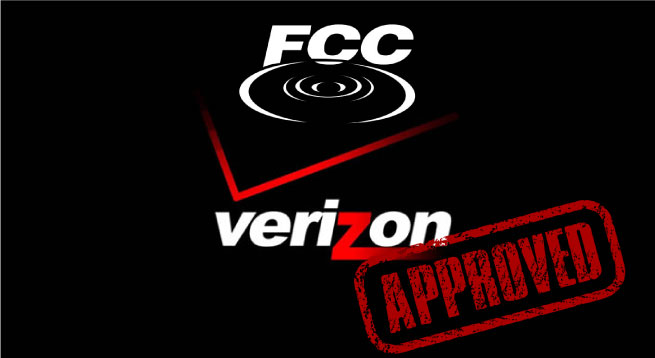Federal Communications Committee has approved a deal that will see Verizon purchase a portion of wireless spectrum from a handful of big cable television providers, the federal committee announced today.
The deal’s approval should help alleviate some of the spectrum crunch currently experienced in the wireless industry and speed up existing wireless networks — with Verizon’s new 4G LTE getting the most benefit, of course. However, concerns sprout from groups such as Verizon competitors, federal regulators, and special interest groups about giving the nation’s largest wireless carrier even more spectrum.
The wireless spectrum Verizon is obtaining from the cable companies was initially licensed out by the government with the intention of promoting competition in the wireless service market. Comcast, Time Warner, Bright House and other cable providers ultimately decided that launching their own wireless network didn’t make business sense — meaning the spectrum essentially went unused for years despite the wireless industry’s constant demand for more spectrum to build faster and more reliable wireless networks for consumers.
Originally, the deal would have allowed Verizon to purchase the licenses for the spectrum for $3.6 billion and allow cable companies to run their own branded wireless services through Verizon as well as cross-promote their existing cable TV services within Verizon Wireless retail stores. After some push back from federal regulators as well as other wireless carriers, the Department of Justice approved the deal last week, provided certain stipulations were met.
Under the approved deal, Verizon cannot cross-promote cable TV services from the big cable companies. Verizon also agreed to swap portions of its spectrum with smaller carriers (such as fourth-largest carrier T-Mobile) — a move that quickly caused Deutsche Telekom to put its own stamp of approval on the deal — and provide roaming service at a reasonable rate to other carriers.
“The Commission’s decision is based on a thorough review of the record, which includes extensive data and analysis from the applicants, as well as thousands of comments from interested parties and substantial public input,” the FCC said in a statement. “In addition, Commission staff coordinated closely with the staff of the U.S. Department of Justice’s Antitrust Division (“DOJ”) throughout the review.”
We’ve pasted the full list of stipulations by the FCC below:
- Verizon Wireless must close its proposed spectrum transfer with T-Mobile within 45 days of its closing of the SpectrumCo, Cox, and Leap transactions.
- Within three years, Verizon Wireless will provide signal coverage and offer service to at least 30 percent of the total population in the Economic Areas or the portions of Economic Areas in which it is acquiring AWS-1 license authorizations (calculated by summing the population for each of these areas); and
- Within seven years, Verizon Wireless will provide signal coverage and offer service to at least 70 percent of the population in each Economic Area in which it is acquiring AWS-1 license authorizations, or, where a portion of the Economic Area is acquired, to at least 70 percent of the population of the total acquired portion of the licensed Economic Area.
- In the event the current data roaming rule is not available to requesting providers, Verizon Wireless will continue to offer roaming arrangements for commercial mobile data services on any of its spectrum in the areas where it is acquiring AWS-1 spectrum to other commercial mobile data service providers on commercially reasonable terms and conditions, and providers may negotiate the terms of their arrangements on an individualized basis. This commitment will remain in place for five years following the date of the Commission’s order.
- Verizon must provide on a semi-annual basis, subject to an appropriate protective order, reports concerning trends in DSL subscribership following the implementation of the commercial agreements.


